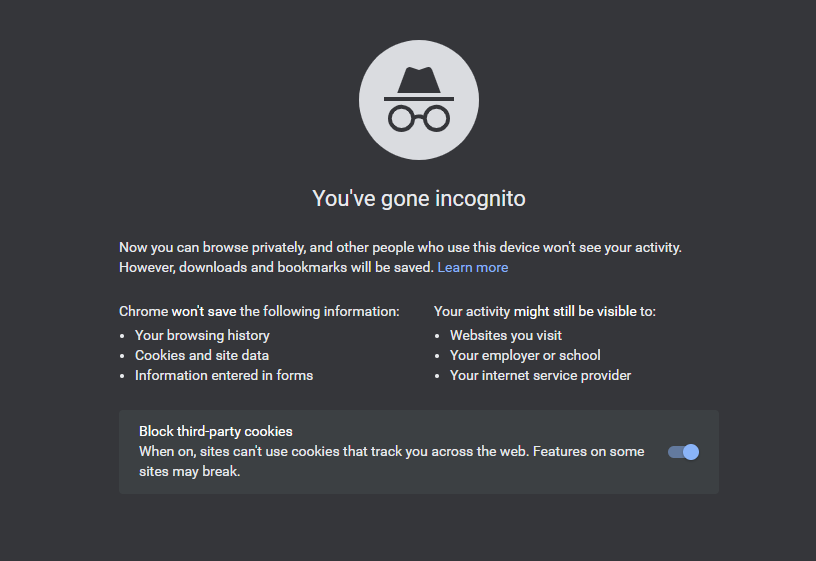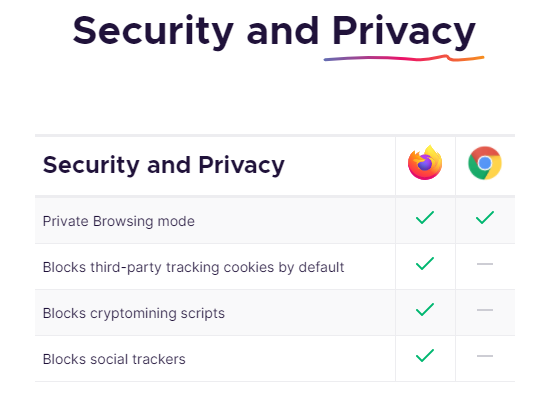This is not a general one product vs. another blog - Mozilla Firefox, and Google Chrome in this case. But I do have some interesting points to discuss both.
The recent and major class action on Google was filed in June, claiming that Google collects information of the user even in the incognito mode violating the federal Wiretap Act, California's Invasion of Privacy Act (CIPA).
The case was filed to the US District Court (Northern District of California) by a partner at the Boies Schiller Flexner law firm. The filed case states that Google is in breach of privacy due to the 'unlawful and intentional interception and collection' of data in the incognito mode. Google allegedly says that it doesn't do that, and our data is safe and secured. But the claim made against Google has a different story to tell.

When you open Google's incognito mode, it says that your activity might still be visible to websites you visit, your school or employer, and your internet service provider. The word 'might' goes either way, which raised doubts in the said plaintiff's mind. The plaintiff here is every Google user who uses Google chrome. The browser is tracking them even in the private 'incognito' mode – says the complaint.
So, that's one front where Google is fighting the battle. The second battle it is struggling with is vulnerability, and that too when it is compared with that of Mozilla Firefox, which is a lot of small entity than Google.
In the year 2020, where Google is fighting a court war for privacy tracking and security hindrance, Mozilla Firefox has an ETP feature (Enhanced Tracking Protection), which is always on as a default setting for all the users worldwide. Mozilla's ETP is known for blocking over 2000 trackers, social trackers of social media websites such as Twitter, Facebook, and others. Other features include Firefox monitor that sends you the notification if your password has been breached or compromised. Whereas Google's third-party cookies can be blocked too, but that too comes with a disclaimer that 'Features on some sites may break.'

Google is a fairly large entity as compared to Mozilla Firefox, and Mozilla knows it. So, to give it a good competition, Mozilla covers all the loopholes in Chrome, and Mozilla has been doing a good job. The competition is cut-throat because Google Chrome may be more vulnerable and hinders your privacy, but it loads the website pages faster, has a huge library of extensions and add-ons. It really anybody's game at the end of the day. I use Google Chrome and Firefox both for different purposes.
- Google Chrome for regular browsing and news reading as results open quicker.
- Mozilla Firefox for official work and social media as it feels more secure.
Segregating the two for different tasks keeps me organized as well.
As per the CVE Details – The Ultimate Security Vulnerability DataSource
In the last five years, Mozilla Firefox has had faced 751 vulnerabilities, and Google Chrome was exposed to 850 vulnerabilities. This shows that even after being an underdog, Mozilla is taking good care of its users.
Google has a 70 percent user base share and is increasing with each year followed by Mozilla Firefox and Safari. – Statista Report
The prime reason for such a huge user base can be the connected ecosystem Google has created. Its email service and the 'one account to connect everything' is a gem. No other search engine or browser has connected our digital space the way Google did.
A blog on a detailed comparison between Shopify and Snipcart is available on our website. Do check that out.



